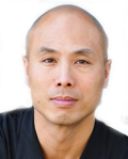Addiction
The Atlanta Asian Spa Shootings
Was the tragedy a result of racism, addiction, or mental illness?
Posted March 22, 2021 Reviewed by Abigail Fagan

The Atlanta spa shootings on March 16th left eight people dead. Six of the victims were women of Asian descent who worked at the spas. It's an unfathomable and horrendous crime occurring in the midst of a pandemic.
There has been an exponential spike in hate crimes and incidents of verbal and physical assaults on Asians both in the U.S. and worldwide. It goes without saying that this shooting had people, especially Asians, wondering if it was racially-motivated.
Police arrested 21-year-old Robert Aaron Long of Georgia after the shooting. Authorities said that Long committed the heinous crime because of his sex addiction, and that he wanted to rid himself of temptation. Long had indicated that he was a religious man and denied any racist motivation. Therein lies the rub—some Americans struggle to see criminal acts from an ethnic minority's perspective.
For example, Lars Larson is a conservative talk radio host based in Portland who wrote, "Was this racially motivated like the narrative that many in politics and the mainstream media have tried to claim, or was it a sex-addicted nut like the police originally announced?" Larson and others like him relish pointing fingers at the media or politicians instead of considering how racism isn't just "I hate Asians" but can be much more subtle in the form of racialized trauma.
Racialized Trauma
Some could argue the gunman’s heinous actions are part of the broader anti-Asian sentiment impacting our country due to the Covid-19 pandemic. I doubt we will find any explicit, deep racist hate towards Asians but we do have to see his crime in the broader context of how race and sexualization of Asian women have been intertwined through the centuries. We need to acknowledge the racialized trauma of how Asian women have been historically perceived and treated and how those cultural and societal viewpoints may have impacted the suspect.
Sung Yeon Choimorrow, executive director of the National Asian Pacific Women’s Forum says Asian women were sexualized and objectified since Congress passed the Page Act of 1975 which essentially stop East Asian women from entering the U.S. because they were seen as prostitutes. “So from the get-go, we’ve always been seen as temptresses and sexual objects, so the fact that those were the words used by the killer to describe Asian American women cannot be separated from these historical contexts from which we come from”. These beliefs became even more entrenched with America’s past involvement in wars overseas dating back from the Spanish-American War to the most recent war in Vietnam where American soldiers’ presence increased the demand for Asian sex workers.
In the spa shootings, it’s reported he frequented two of the three spas that he targeted and by doing so, he’s implicitly fetishizing, objectifying, and dehumanizing Asian women whether he was conscious of this or not. What he was aware of when he decided to carry out the shootings was who the victims would be. He knew that they would be primarily Asian and thus I think race plays a role in his thinking as it’s easier to kill someone (or a group of people) if you can dehumanize them in some manner or form, and in this case, “Asian women who tempted me sexually”. Would this same atrocity occur if he was to visit a spa or strip club where the women were white? Representative Ted Lieu, a member of the House Judiciary Committee told CNN, “It looks to me that he knew he was going to places where disproportionately the people he shot up would be Asians, and female, and I think the investigators need to really look at these facts”. Thus, a more nuanced view of racism and sexism is a better means of understanding this act of violence as opposed to the simplistic dismissal by critics that race can’t be a factor unless the shooter made explicit statements of hating Asians or harbored known racist attitudes.
The Devil made me Do It
The final consideration is how his faith impacted his actions. Was the Atlanta spa shooter, in his attempt to rid himself of sexual temptation, a religious extremist in search of a means for atonement from his sexual sin and shame? Within Christian circles, there is a lot of confusion regarding the issue of sex addiction and how one is to find freedom from sexual temptation of this nature. What’s often preached or interpreted is sexual sin of this nature is the most egregious barrier to spiritual health or one’s relationship to God. Consequently, maybe the gunman was caught in a spiral of sex, secrecy, and shame where he found no escape except through extreme means such as violence to ameliorate his guilt.
No Easy Answers
We as Americans want answers now. We want them to be easy to comprehend, palatable to our senses, and compartmentalized to a narrative we see fit. But as you can see from this shooting, it’s anything but simple. It requires us to examine our personal views regarding addiction and mental health, our societal prejudices against women and people of color, in addition to the complicated role religious rhetoric can have on one’s mind, body, and soul.
As a Chinese-American psychotherapist who specializes in both Asian cultural issues and compulsive sexual behaviors, I'd like to caution people against dismissing this crime as someone who was simply suffering from his sex addiction or a mental illness. Thnk about other addictions such as individuals struggling with alcohol, gambling, or marijuana. Do you hear any of them "tempted" to use deadly violence targetting employees at bars, liquor stores, casinos, or marijuana shops? Of course not. The temptation excuse is non-sensical to my clinical ears, let alone common sense.
The issue of race isn't meant to blame or shame anyone, nor is it to inflame racial division in this country, but to ignore the impact of race altogether in this horrific crime would be an egregious affront to all Americans regardless of ethnic background.
References
Sam also speaks on Asian cultural issues and addictions. Please go to his speaking site for more information. www.SamLouieSpeaks.com




